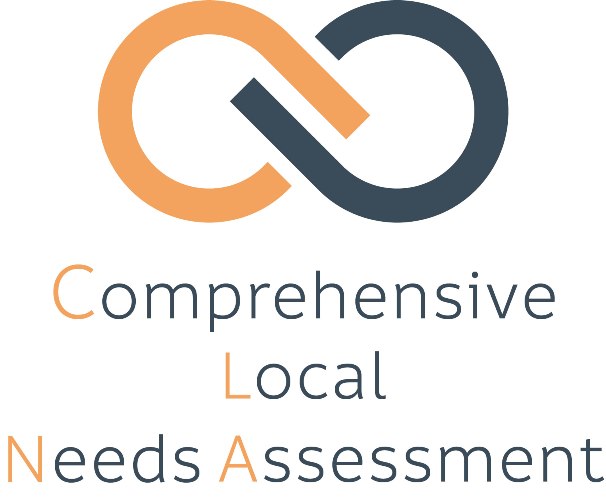
Equity and Racial Equity Resources
CLNA Through the Lens of Racial Equity
The Comprehensive Local Needs Assessment (CLNA) process offers you and your stakeholders an opportunity to examine the success of career and technical education (CTE) programs through both equity and the lens of racial equity. In collaboration with the Illinois Community College Board (ICCB), we developed an equity-centered, comprehensive local-needs assessment, which includes seven specific sections with links to recommended resources to assist your campus in the CLNA process.
Additionally, given the race-neutral language of the Perkins V law, we incorporated resources that are specific to racial equity, which community colleges will find useful.
Progress Toward Improving Access and Equity
This step is geared toward a critical examination of career and technical education (CTE) programs through an equity lens to assess whether and how equity is systemically embedded in all aspects of CTE program structures, resources, materials, curricula, pedagogy, and practices.
Resources to Help
- Defining and Assessing Equity in Community Colleges
- Developing "Equity Sense": Meaning-Making at a Community College
- Racial & Ethnic Equity Gaps in Postsecondary Career and Technical Education
- Investment in the Future: BIPOC/Adult Education, Skills Training, and North Carolina's Economy
- Supporting Racial Equity in Career and Technical Education in 2021 and Beyond
- Assessing Racial Campus Climate
- An Equity-Centered, Comprehensive Local-Needs Assessment
- Creating a Space for Student Voice in Advancing Program Review
- Five Principles for Enacting Equity by Design
- Leadership and Equity-Driven Change in Program Review
- Preparing Principals to Lead the Equity Agenda
- Taking Equity-Minded Action to Close Equity Gaps
Student Performance Data
This portion helps participants evaluate students' performance on federal, state, and local measures and identifies any equity gaps based on this data.
Resources to Help
- Using Student Achievement Data to Support Instructional Decision Making
- How Outcomes Metrics Can Better Reflect Community College Performance
- Creating a Space for Student Voice in Advancing Program Review
- Leadership and Equity-Driven Change in Program Review
- Making Good on the Promise: Examining Access and Achievement Gaps
- Perkins V Analysis - Local At-a-Glance Info
Recruitment, Retention, and Training of CTE Faculty and Staff
This section will assist with evaluating current and future recruitment, retention, and professional development needs with both an equity and culturally responsive lens.
Resources to Help
Stakeholder Participation
This portion of the process requires listing the stakeholders who participated in the Comprehensive Local Needs Assessment process. Acquire information such as their title, organization, and how they are involved in the CLNA process.
Resources to Help
Labor Market Alignment
This section asks participants to consider how their programs align with state, regional, and/or local labor-market needs and demands.
Resources to Help
- Assessing the Alignment Between West Virginia's High School Career and Technical Education Programs and the Labor Market
- Labor Market Information
- Designing Career and Technical Education Programs that Help Students Get Good Jobs
- Career Pathways & Talent Pipeline Analysis
- Illinois Department of Employment Security
Program Size, Scope, and Quality as Defined by the Illinois State Plan for Perkins V
This section asks participants to refer to the state definitions of size, scope, and quality and assess whether the number of programs of study and courses being offered meet the needs of student populations.
Resources to Help
- Auditing a State Career and Technical Education Program for Quality: A Playbook for State Policymakers
- Creating a Space for Student Voice in Advancing Program Review
- Equity Audits: A Practical Leadership Tool for Developing Equitable and Excellent Schools
- Leadership and Equity-Driven Change in Program Review
Progress Toward Implementing CTE Programs of Study
This area helps participants determine whether and how, according to the Perkins V law, programs of study at the postsecondary level are a coordinated, non-duplicative sequence of academic and technical content.
Resources to Help
- Postsecondary Perkins Learning Community: Comprehensive Local Needs Assessment
- Creating a Space for Student Voice in Advancing Program Review
- Leadership and Equity-Driven Change in Program Review
- Making Good on the Promise: Examining Access and Achievement Gaps
- Perkins V Analysis - Local At-a-Glance Info
Other Resources
- Beyond the Numbers: Design Principles for CTE Data Reporting
- Carl D. Perkins Career and Technical Education Act
- At What Cost: Strengthening California Community College Career and Technical Education Through Student Services
- Data-Driven Leadership
- Perkins Guidelines and Application - Career & Technical Education
- Perkins V Comprehensive Local Needs Assessment Learning Center
- The Color of Bureaucracy: The Politics of Equity in Multicultural School Communities
- The Roadmap for Racial Equity